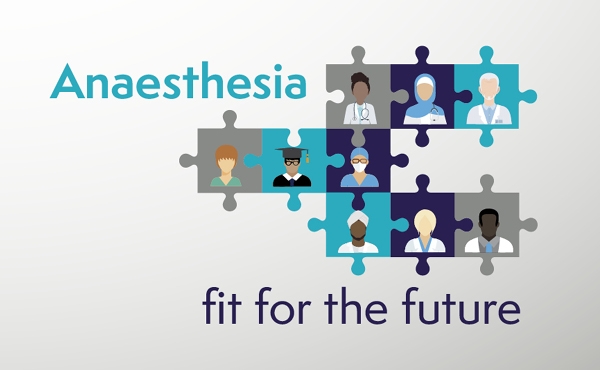The Anaesthetic Workforce: UK State of the Nation Report 2024
The Anaesthetic Workforce: UK State of the Nation Report 2024
The Anaesthetic Workforce: UK State of the Nation Report 2024 provides a comprehensive overview of the anaesthetic workforce, including training, retention and future projections. We also set out the urgent actions that are needed.
While anaesthetist numbers have increased since our last UK State of the Nation Report in 2022, the shortfall has increased even more. This is due to rising healthcare demand, driven by factors such as the growing and ageing population. As such, the NHS remains in urgent need of more anaesthetists.
Our advocacy work has secured an additional 70 higher anaesthetic training places in the last three years, but these increases remain significantly short of the expansion needed.
Key findings
-
Anaesthetists are vital to addressing the NHS waiting list crisis because most operations cannot take place without an anaesthetist.
-
There are 10,628 consultant and SAS (specialists, associate specialists and specialty doctors) anaesthetists in the UK. However, this number is around 1,900 (15%) short of what is needed.
-
We estimate that this shortfall is preventing roughly 1.4 million operations and procedures from taking place per year and increasing expenditure on expensive agency locum staff.
-
The supply of anaesthetists is constrained by inadequate numbers of training places and poor retention.
-
With only 14.23 anaesthetists per 100,000 people, the UK falls behind other high-income European nations such as Germany (37.37) and even some lower-income European nations like Moldova (16.12).
-
Unless urgent action is taken, the NHS could have a shortfall of 11,000 anaesthetists by 2040, which could prevent 8.25 million operations and procedures from taking place per year.
-
Workforce shortages impact the existing workforce by putting additional workload on doctors, fuelling burnout and harming retention.
Action needed
-
The development of national plans for specialty training.
-
Increasing the number of funded anaesthetic training places.
-
Improve development opportunities and recognition of SAS doctors.
-
Measures to improve retention.
-
Ensure previous detrimental policies, such as the pension taxation regime, do not return.
How we are using the report
Securing an increase in anaesthetic training places, alongside measures to improve retention, remains an absolute priority for the College. We have repeatedly made the case for why this is essential to successive governments and NHS leaders, and we will continue to do so.
This report provides further evidence to strengthen our campaign. As the Government develops its promised 10-Year Health Plan for the NHS, we are seeking to influence at every opportunity, including shaping the next iteration of the NHS Long Term Workforce Plan.
We are also sharing the report with senior NHS (and HSC) figures across all four nations of the UK, and will use it, and its summary version, to brief politicians and policy makers.

